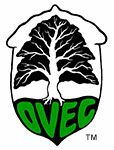- Like
- Digg
- Del
- Tumblr
- VKontakte
- Buffer
- Love This
- Odnoklassniki
- Meneame
- Blogger
- Amazon
- Yahoo Mail
- Gmail
- AOL
- Newsvine
- HackerNews
- Evernote
- MySpace
- Mail.ru
- Viadeo
- Line
- Comments
- Yummly
- SMS
- Viber
- Telegram
- Subscribe
- Skype
- Facebook Messenger
- Kakao
- LiveJournal
- Yammer
- Edgar
- Fintel
- Mix
- Instapaper
- Copy Link
 A guest blog by OVEC membership committee member Sylvia Arthur
A guest blog by OVEC membership committee member Sylvia Arthur
A good website for finding out about elected representatives is Open Congress. Open Congress is a project of the Participatory Politics Foundation, a 501(c)3 non-profit organization that builds free and open-source software for civic engagement. The Sunlight Foundation, also a non-profit organization, is the founding and primary supporter of Open Congress. Open Congress brings together official government data with news coverage, blog posts, public comments, and more to give you the real story behind what’s happening in Congress.
If you don’t already know who represents you in Congress, you can look them up by your zip code. Note: If you live in a split district you should put in your full address whenever possible. On the pages of your Senators and Representatives, you can look through their full voting history, their recently sponsored bills, and see who made their campaign contributions. By subscribing to their RSS feeds, you can easily keep track of your representative’s latest votes and sponsored legislation.
Open Congress wants to help people to lobby more effectively. On the Issues page, you can look back through the results of major votes on issues you care about. You can identify prominent sponsors of legislation, as well as “swing” votes in Congress — members of Congress who tipped the balance in close votes. This makes it possible to better focus your lobbying efforts, as well as refer to specific bills and votes, when you call or write to your members of Congress. Open Congress has good information. It is easy to find what you are looking for. You can write representatives directly from the site
GovTrack.us is a tool created by Civic Impulse, LLC to help the public research and follow legislation in the United States Congress and the state legislatures. Launched in 2004, initially as a hobby, its goal is to promote and innovate government transparency, civic engagement and civic education. It has since gone on to win multiple awards for online education. You can use their congressional directory to research and track your current congress persons. They carry similar information like vote history, sponsored bills and a money trail. Information also includes how far to the left or right they are, relative to everyone else in Congress and the committees they sit on. They will have redistricting maps available in January of 2013.
Some related websites to research the issues
If you are inspired to write to your representative you might suddenly realize, (as you finally sit down to do it) that you have an opinion, but not many facts. The OVEC website is full of helpful articles and information that can help “back you up” as you attempt to contribute and educate your legislators. They are very busy and you would be surprised at what they don’t know. Your letter can make a lot of difference to how they might vote on an issue. Here are two sites that can also help you get your facts straight and build your case.
ProCon.org is a 501(c)(3) nonprofit public charity that has no government affiliations of any kind. ProCon.org promotes critical thinking, education, and informed citizenship by presenting controversial issues in a straightforward, nonpartisan, primarily pro-con format. It’s great to see issues broken down into a few brief statements. One problem however, is that all pros and cons are not equal. ProCon.org does have a system for rating the quality of each side. But, for instance, we are well aware of the recent million dollar efforts to deny or rebut climate change. The actual debate about climate change happened over the past 40 years or so and consensus has been reached. As a matter of fact the U.S. Environmental Protection Agency and the U.S. National Academy of Sciences released reports concluding that the build-up of carbon dioxide and other “greenhouse gases” in the Earth’s atmosphere will likely lead to global warming in 1983. So, the danger is that one can manufacture controversy where there is none and receive equal standing in a pro-con presentation.
A second good spot I found is actually a homework help site. This web page was created to meet the needs of Multnomah County Oregon middle and high school students researching current social issues from multiple perspectives. Works for me! Click here. If this link does not work you can click here, then click on the Research tab on the menu on the top of home page, then click “Homework web sites” on the research page. From there choose “social issues”.
Have you ever wondered where our legislators get their information from? I mean besides the high powered lobbyists? Go to: Open CRS Congressional Research Service Reports for the People. Congressional Research Service (CRS) reports are provided to members of Congress for background information on a number of issues. Open CRS is a project of the Center for Democracy & Technology. Their mission is to provide citizens access to CRS Reports that are already in the public domain and they encourage Congress to provide public access to all CRS Reports. You can search by subject. This site is very useful because you can see what information is actually being provided to congresspersons. Some states also have public access to the information provided to legislators.











